Online Exercise Salon for the Elderly through Industry-Academia Collaboration
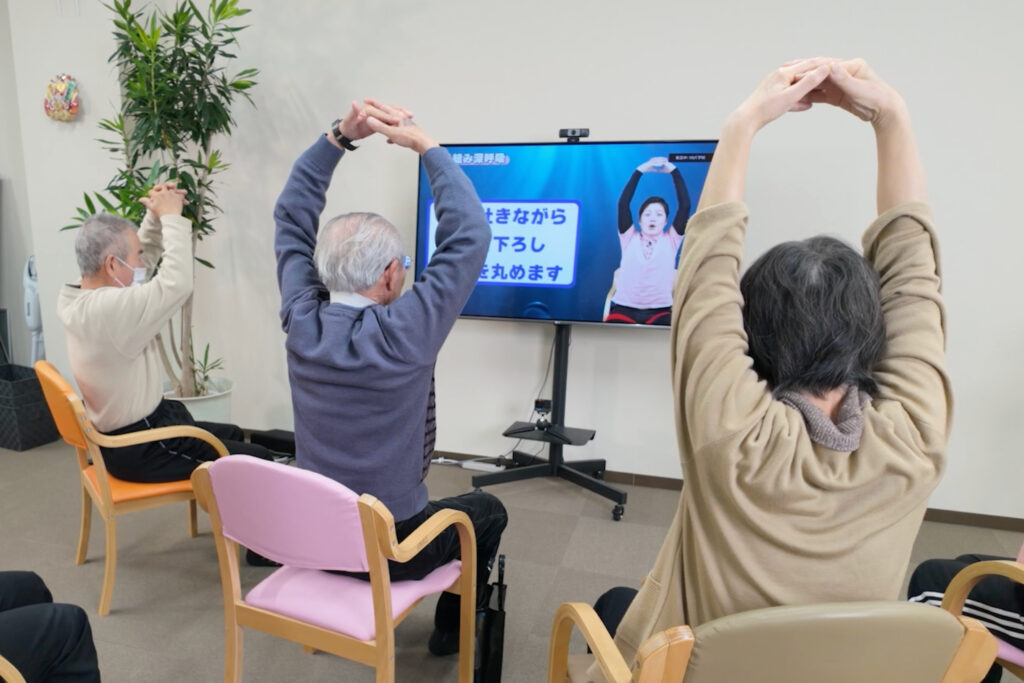
Based on a unique concept of “gut-brain-muscle correlation,” this program offers online exercise and brain health broadcasts on a contract basis to nursing homes. By providing more than 10,000 combinations of evidence-based exercises designed to prevent frailty and maintain health, the salons reduce the need for nursing personnel to spend time and resources creating their own content to keep residents healthy and
engaged
IM-OK Project
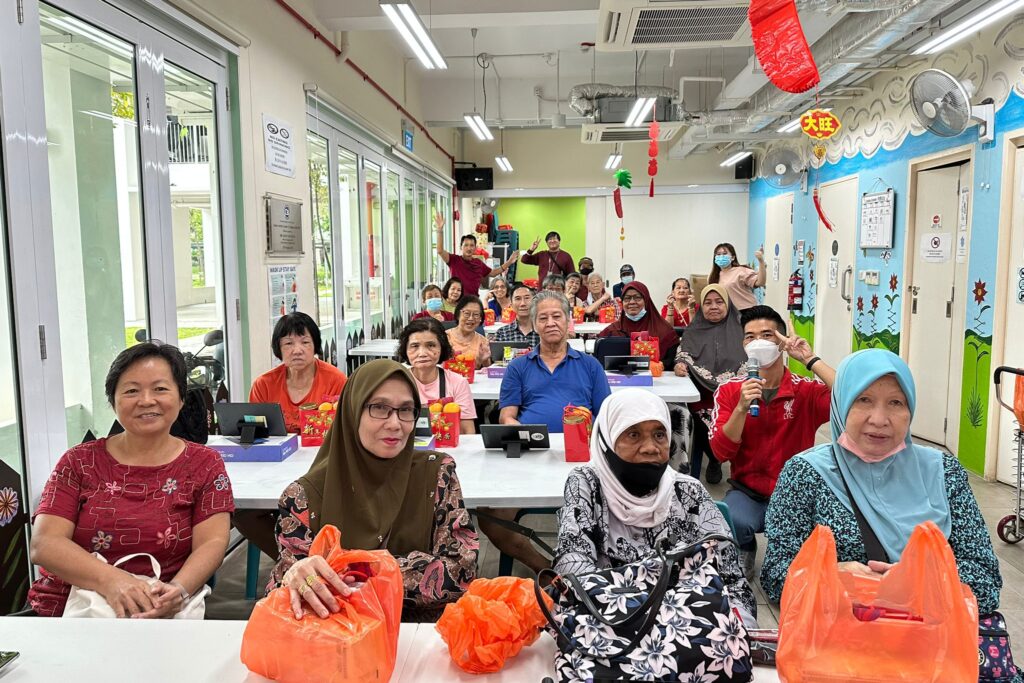
To combat social isolation, the Lions Befrienders Service Association (LBSA) created an easy-to-use elderly-friendly tablet device that lets users monitor and report their daily wellbeing. Pushing an “I am OK”button lets people know they are alright, and any missed check-ins alert family or LBSA volunteers to confirm the person’s safety. The tablet offers entertainment, learning, and health-related functions as well.
Micro-Jobs Program for Older People

The Micro-Jobs Program lets healthy, active seniors assist frailer peers in their neighborhood through tasks such as meal delivery, medication reminders, or accompanying people to doctor’s appointments. The tasks are “bite-size,” so there is a low barrier to entry. Participants are trained and receive a modest allowance in
return for the tasks. More importantly, they feel a sense of purpose and engagement with their community.
Home Nursing to Regenerate the Town
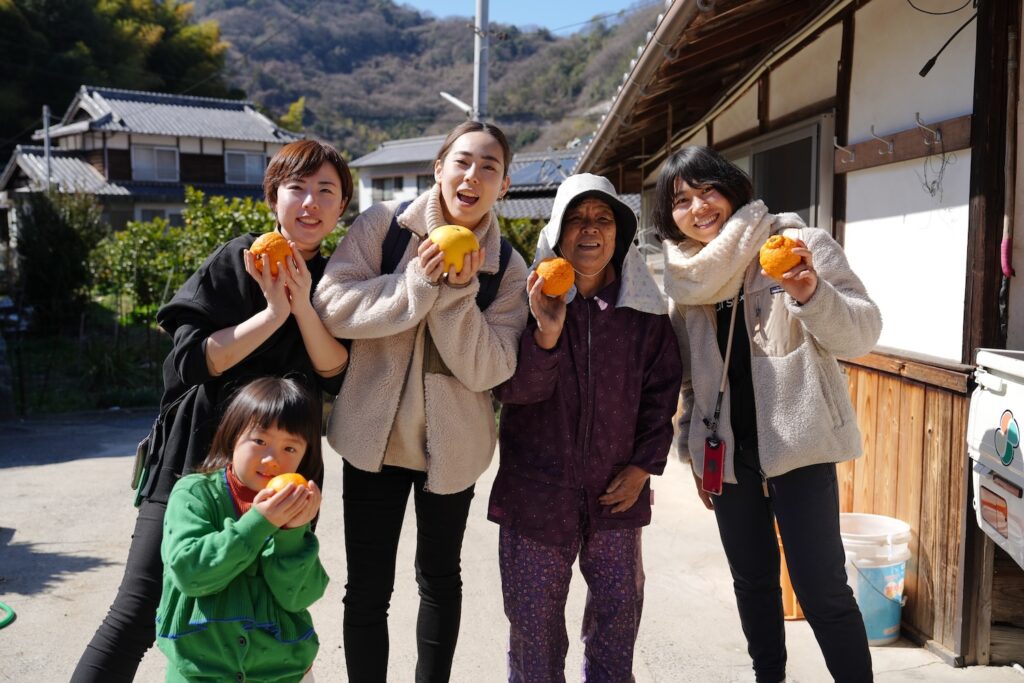
Nurse & Craft addresses aging, rural communities by establishing a home-visit nursing station to provide medical treatment and care at home, taking advantage of telemedicine to access medical doctors on the mainland. They also offer a combination of health monitoring technologies, regular home visits by nurses, and health classes to improve medical literacy and digital literacy among older residents and promote healthier living.
Go Bike Project—Ronda Kalusugan Program
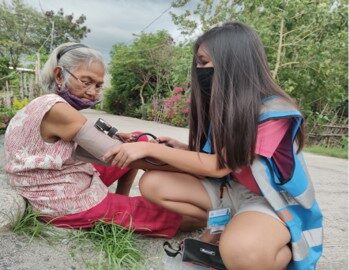
Go Bike trains young volunteers to become community responders—“Go Bikers”—in times of emergencies and disasters. They use bicycles equipped with first-aid kits, medicine, blood pressure apparatus, random blood sugar checking kits, and disaster response equipment that they used to effectively respond to help those in their communities. Recognizing the value of these trained volunteers, the project expanded the following year to have the Go Bikers conduct a regular health monitoring program for older people called the “Ronda Kalusugan Program,” which includes blood pressure and blood sugar monitoring. This is designed to help hypertensive and diabetic patients in the community monitor their health and respond quickly if the person requires further attention.
Ready Senior Project
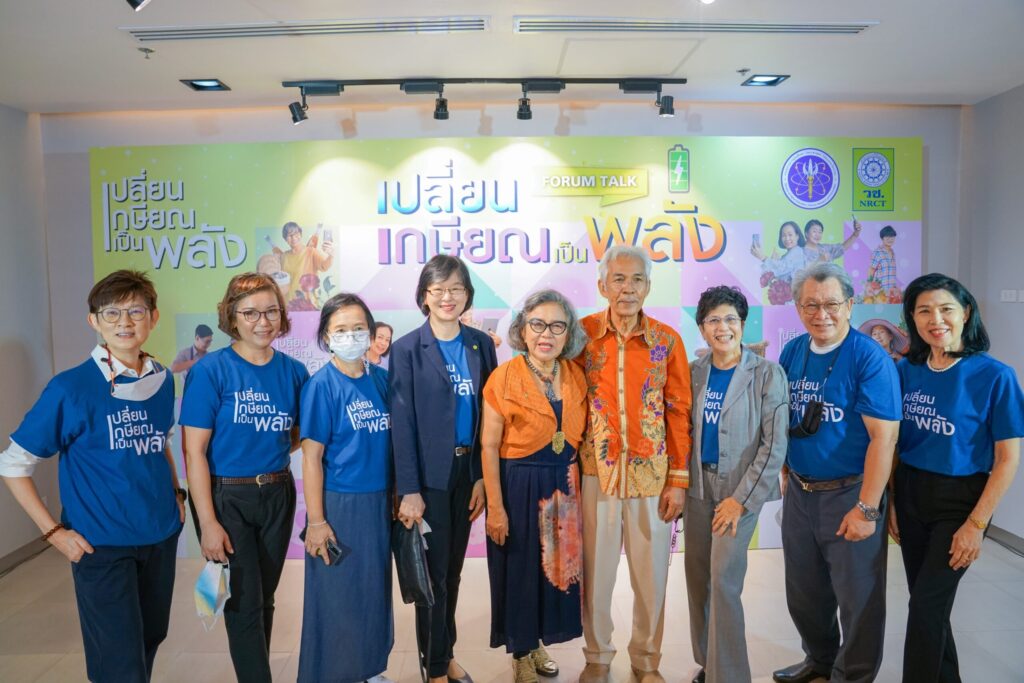
The Ready Senior Project is an online platform that includes a learning space for gaining technology skills as well as health-related and caregiving skills. This university-based project seeks to empower older people to be economically self-reliant, have a good quality of life, and reduce the burden on healthcare systems as Thailand’s population continues to age.
Bangkok Metropolitan Administration Model of Preventive Long-Term Care
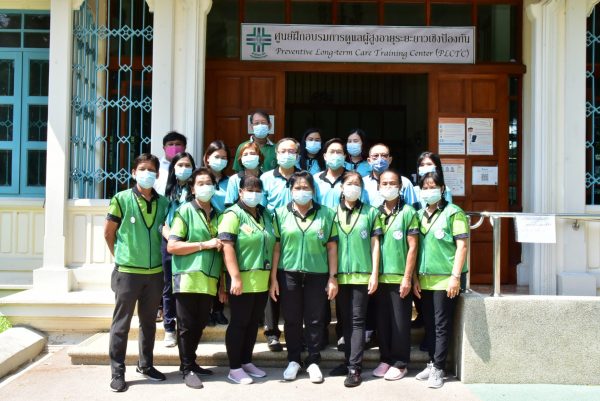
BMA is introducing the concept of preventative long-term care to Thai communities. The program aims to promote physical and mental wellbeing through locomotion training and “cognicise” in almost 70 community sites across Bangkok.
Health Promotion for Elderly in Northeastern Thailand Using Japan’s Self-Sustained Movement (SSM) Program
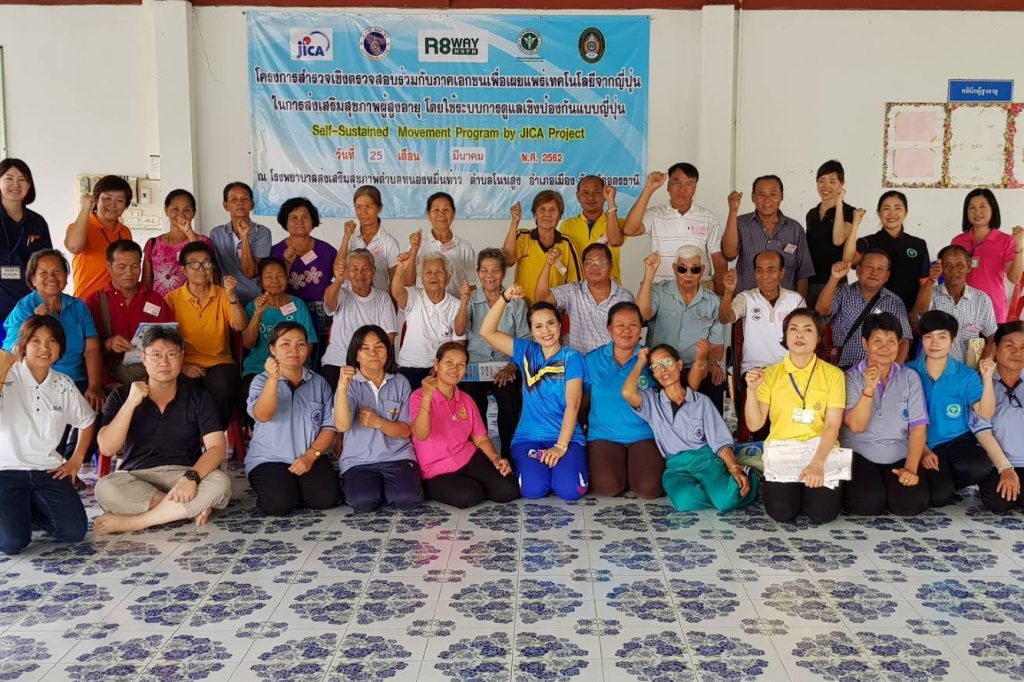
Hatachi Industry has worked in close collaboration with Thai partners to transfer their know-how for a preventative care system that can meet the needs of older Thai people. The program has been particularly effective at identifying and supporting frail older people who may soon require nursing care.
Accompanying the Elderly to Face the COVID-19 Pandemic
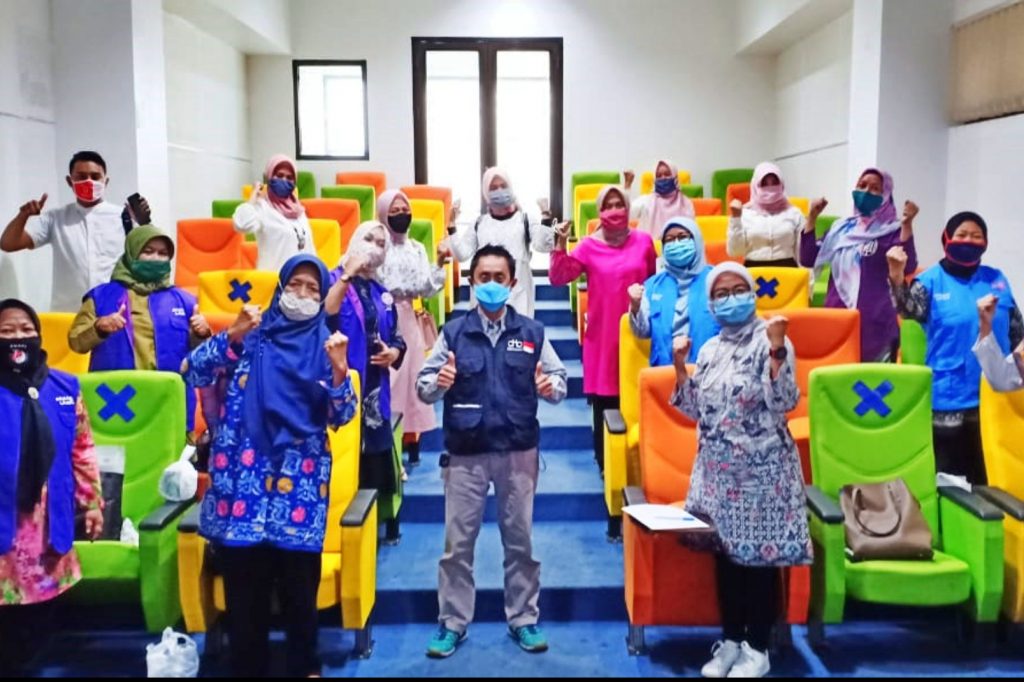
In response to the COVID-19 pandemic, IRL quickly developed a home visit program, which aimed to minimize COVID-10 transmission and meet the biological, psychological, and sociocultural needs of older people.
The Matsudo Project: A New Urban Model for Reducing the Need for Long-Term Care in the Post COVID-19 Era
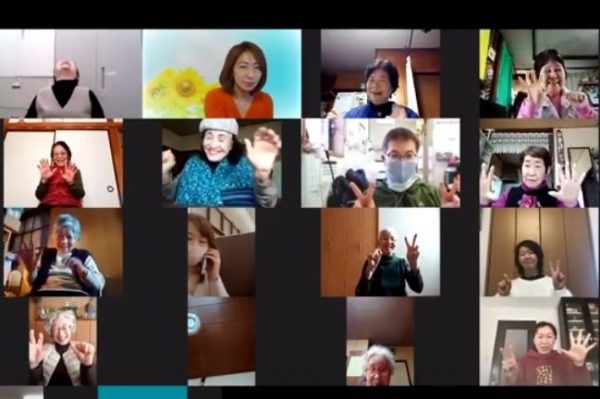
The Matsudo Project offers free online Kayoinoba classes in response to the challenges of its aging population and the COVID-19 pandemic. These classes provide older people with opportunities to connect with each other and across generations and to become more confident to use technology in their everyday lives.

